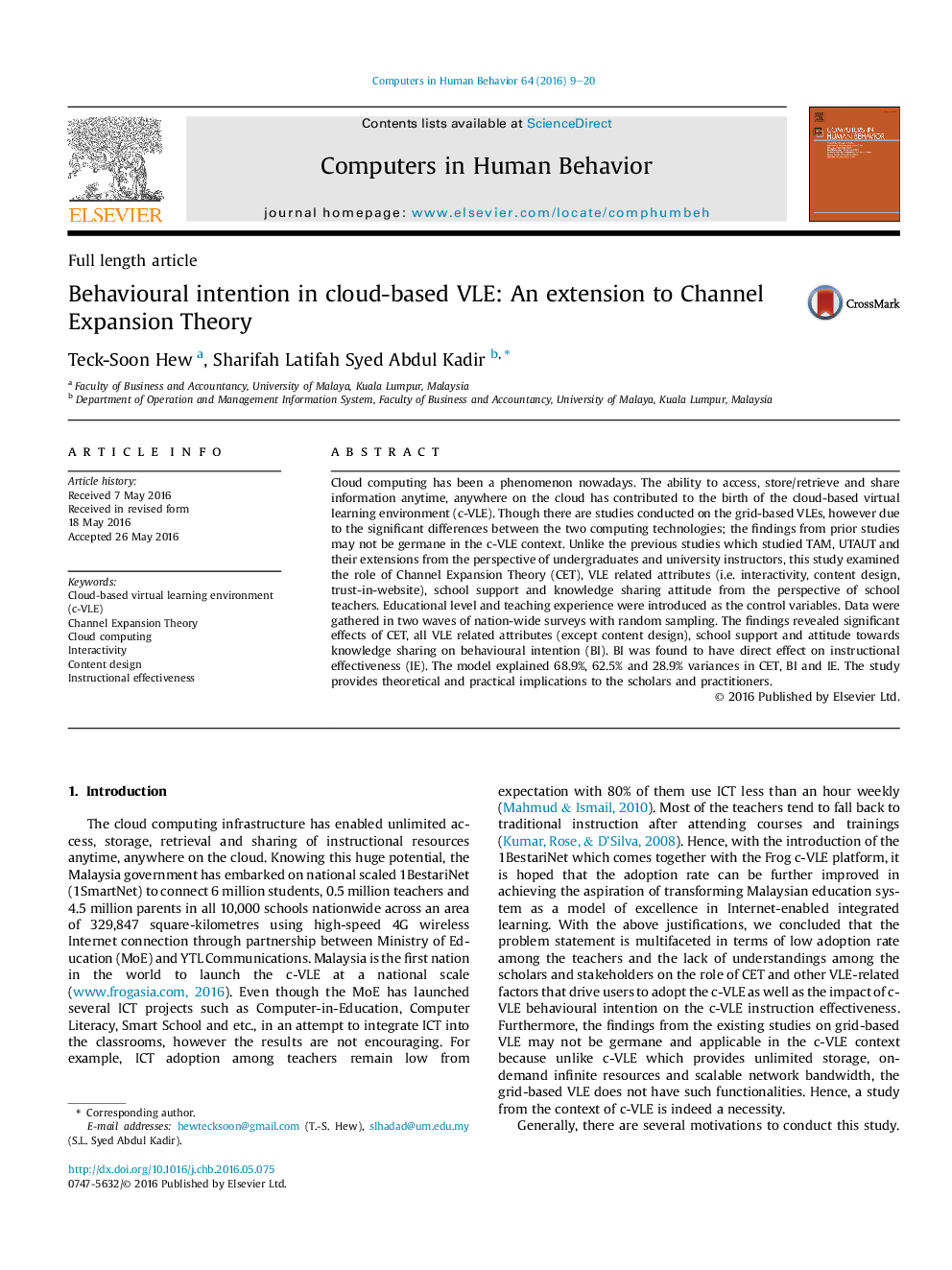| Article ID | Journal | Published Year | Pages | File Type |
|---|---|---|---|---|
| 6836396 | Computers in Human Behavior | 2016 | 12 Pages |
Abstract
Cloud computing has been a phenomenon nowadays. The ability to access, store/retrieve and share information anytime, anywhere on the cloud has contributed to the birth of the cloud-based virtual learning environment (c-VLE). Though there are studies conducted on the grid-based VLEs, however due to the significant differences between the two computing technologies; the findings from prior studies may not be germane in the c-VLE context. Unlike the previous studies which studied TAM, UTAUT and their extensions from the perspective of undergraduates and university instructors, this study examined the role of Channel Expansion Theory (CET), VLE related attributes (i.e. interactivity, content design, trust-in-website), school support and knowledge sharing attitude from the perspective of school teachers. Educational level and teaching experience were introduced as the control variables. Data were gathered in two waves of nation-wide surveys with random sampling. The findings revealed significant effects of CET, all VLE related attributes (except content design), school support and attitude towards knowledge sharing on behavioural intention (BI). BI was found to have direct effect on instructional effectiveness (IE). The model explained 68.9%, 62.5% and 28.9% variances in CET, BI and IE. The study provides theoretical and practical implications to the scholars and practitioners.
Related Topics
Physical Sciences and Engineering
Computer Science
Computer Science Applications
Authors
Teck-Soon Hew, Sharifah Latifah Syed Abdul Kadir,
